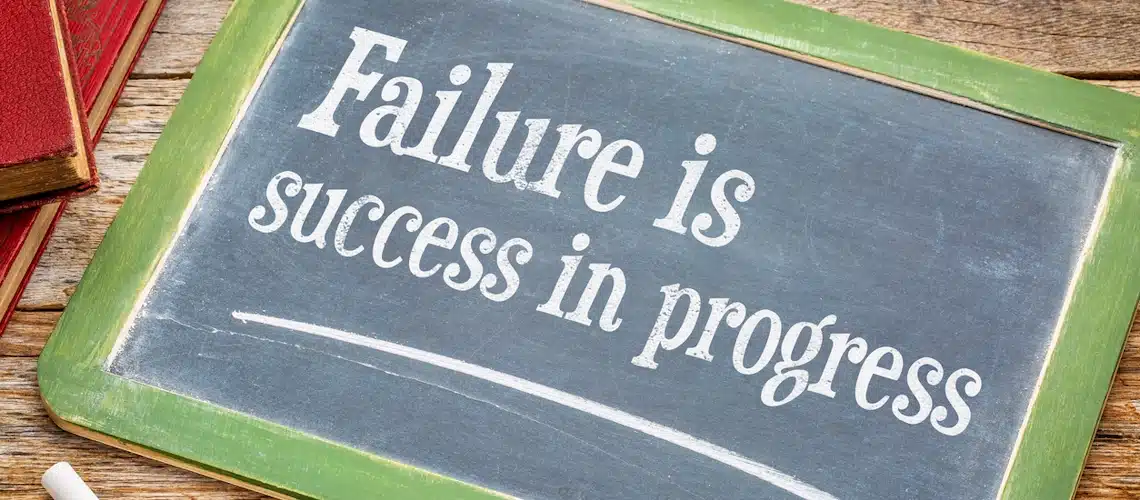A Deep Dive into Failed Startups

Explore insightful analysis on why startups fail, unveiling common pitfalls, lessons learned, and strategies to avoid these missteps. A must-read for entrepreneurs and business enthusiasts alike.

Join 2000+ tech leaders
A digest from our CEO on technology, talent and hard truth. Get it straight to your inbox every two weeks.
No SPAM. Unsubscribe anytime.
In the world of innovation and entrepreneurship, startups are the audacious ventures that disrupt existing industries and, sometimes, carve out entirely new ones.
However, the harsh reality is that, according to data from the US Bureau of Labor Statistics, around 20% of startups fail within their first year, and nearly 50% don’t make it past the five-year mark. This piece serves as a detailed exploration into why this happens. We’re going to understand the factors behind startup failures and the profound lessons they offer.
The Reality of Startup Failure Rates
The allure of startups is hard to resist: a brilliant idea, the promise of significant profits, the excitement of disrupting the status quo. But behind this glamour is an underbelly of risk and uncertainty. Statistically, around 90% of startups fail, according to a report by Failory. That’s a stark contrast to the success stories we often hear about in the media. Major startups like Theranos and Quibi that attracted billions in investment eventually fell apart, leaving a significant impact on the economy and causing job losses.
Common Reasons for Startup Failures
While the causes behind the downfall of startups are multifaceted, some common patterns emerge.
📉 Lack of Market Need
First and foremost, many startups fail because they misjudge the market need for their product or service. A CB Insights study indicated that 42% of startups fail due to no market need. Without a substantial consumer base that needs or wants what you’re offering, a startup’s journey is bound to be short-lived.
💸 Cash Flow/Financial Management Issues
Secondly, cash flow issues and poor financial management often derail startups. Ensuring a stable cash flow and managing funds effectively is paramount for survival, let alone success.
🛠️ Poor Product Execution
Poor product execution is another significant cause. A great idea is just the beginning; transforming it into a tangible, high-quality product that provides value is the real challenge.
👥 Weak Team or Inadequate Leadership
Startups can also falter due to weak team dynamics or inadequate leadership. A strong, unified team that shares a clear vision is a crucial ingredient in the recipe for a successful startup.
📈 Premature Scaling and Growth Challenges
Lastly, premature scaling and growth challenges have led to the downfall of many promising startups. Companies that scale too quickly often struggle with operational and managerial issues that can lead to their demise.
An In-Depth Look at Some Notable Failed Startups
Case Study 1: Juicero
One of the most well-known failed startups is Juicero, which promised to revolutionize the juice industry.

They created an expensive, high-tech juice press that utilized proprietary juice packets. This startup managed to secure a whopping $120 million in funding and was touted as the next big thing. But it wasn’t long before a bombshell report revealed that the same result could be achieved by simply squeezing the juice packets by hand. Consumers balked at the unnecessary complexity and high price of the machine. The ensuing negative press, consumer distrust, and a lack of need for an over-engineered solution to a non-existent problem led to Juicero’s eventual downfall.
This failure underlines the importance of market research and offering a product that solves a real problem or adds significant value to the customer.
Case Study 2: Zano Drones
Zano Drones was a lesser-known startup that aimed to create palm-sized drones for the consumer market.

ZANO – Autonomous Intelligent Swarming Nano Drone
After a highly successful Kickstarter campaign that raised over $3.5 million, it seemed that Zano was on the fast track to success. However, the startup ran into trouble with product development, continually delaying the delivery of the drones. When they finally did ship, customers were massively disappointed with the product’s performance. Zano failed to meet its promised specifications, and the drone was beset with software and hardware issues. Eventually, the company declared bankruptcy, citing a “lack of funds”.
Zano’s failure highlights the danger of over-promising and under-delivering and underlines the importance of effective project and financial management.
Case Study 3: MoviePass
MoviePass is an interesting case of a startup that failed due to unique circumstances.

MP was a subscription-based service that allowed customers to see a certain number of movies per month for a flat fee. Initially, the company saw a surge in popularity, with a significant increase in subscribers. However, MoviePass was paying full price for each ticket a subscriber purchased, resulting in a massive financial drain. The more subscribers used the service, the more money MoviePass lost. To stay afloat, MoviePass tried various methods, such as changing its pricing model, limiting the number of movies users could see, and even borrowing large amounts of money.
But the damage was done. Despite its early success, the unsustainable business model led to MoviePass’s demise. This case highlights the importance of having a viable and sustainable business model from the outset.
Lessons Learned From Failed Startups
There’s much to learn from the wreckage of failed startups. It’s crucial for entrepreneurs to deeply understand their market and customer needs. Startups must build products that provide real value and have a well-defined USP in the marketplace.
Sound financial planning and management cannot be overemphasized. Without adequate financial resources and proper allocation, even the most innovative startups can find themselves on shaky ground.
The role of leadership is pivotal in any startup. Effective leaders can inspire the team, create a shared vision, and drive the startup towards success.
Lastly, scalability should be a planned and calculated move. It’s critical to have stable foundations and processes before scaling operations.
Five Strategies to Avoid Startup Failure
1. Effective Business Planning
Every successful startup begins with a comprehensive business plan. This document should detail your startup’s objectives, strategies, target market, and financial forecasts.
2. Secure Appropriate Funding
Securing the right amount of funding is key. Underfunding can lead to cash flow issues, while overfunding can lead to wasteful spending.
3. Robust Market Research
Robust market research is crucial to understanding your customers, competitors, and overall industry landscape.
4. Building a Strong and Versatile Team
Hiring the right people is essential for a startup’s success. A dedicated, versatile team can adapt to changing situations and drive growth.
5. Embracing Flexibility
Startups should be flexible in their strategies and execution. When something doesn’t work, be prepared to pivot and adjust your approach.
How Failure Can Lead to Future Success
It’s important to remember that failure is not the end of the road, but a stepping stone towards success. Entrepreneurs like Steve Jobs and Elon Musk have faced significant failures before achieving monumental success. Embracing failure and learning from it is what sets successful entrepreneurs apart. This concept of ‘failing forward’ encourages us to view failure as an opportunity for growth rather than a setback.
Final Thoughts
Navigating the startup landscape is undeniably challenging, and failure is often part of the journey.
However, understanding why startups fail can help us sidestep these pitfalls and increase our chances of success. We need to remember that failure is not a dead-end but a detour towards a better route.By learning from the past, planning strategically, assembling the right team, and remaining flexible in our approach, we can beat the odds and steer our startups towards success.
Tags: analysis, bankruptcy, challenges, closure, disruption.


